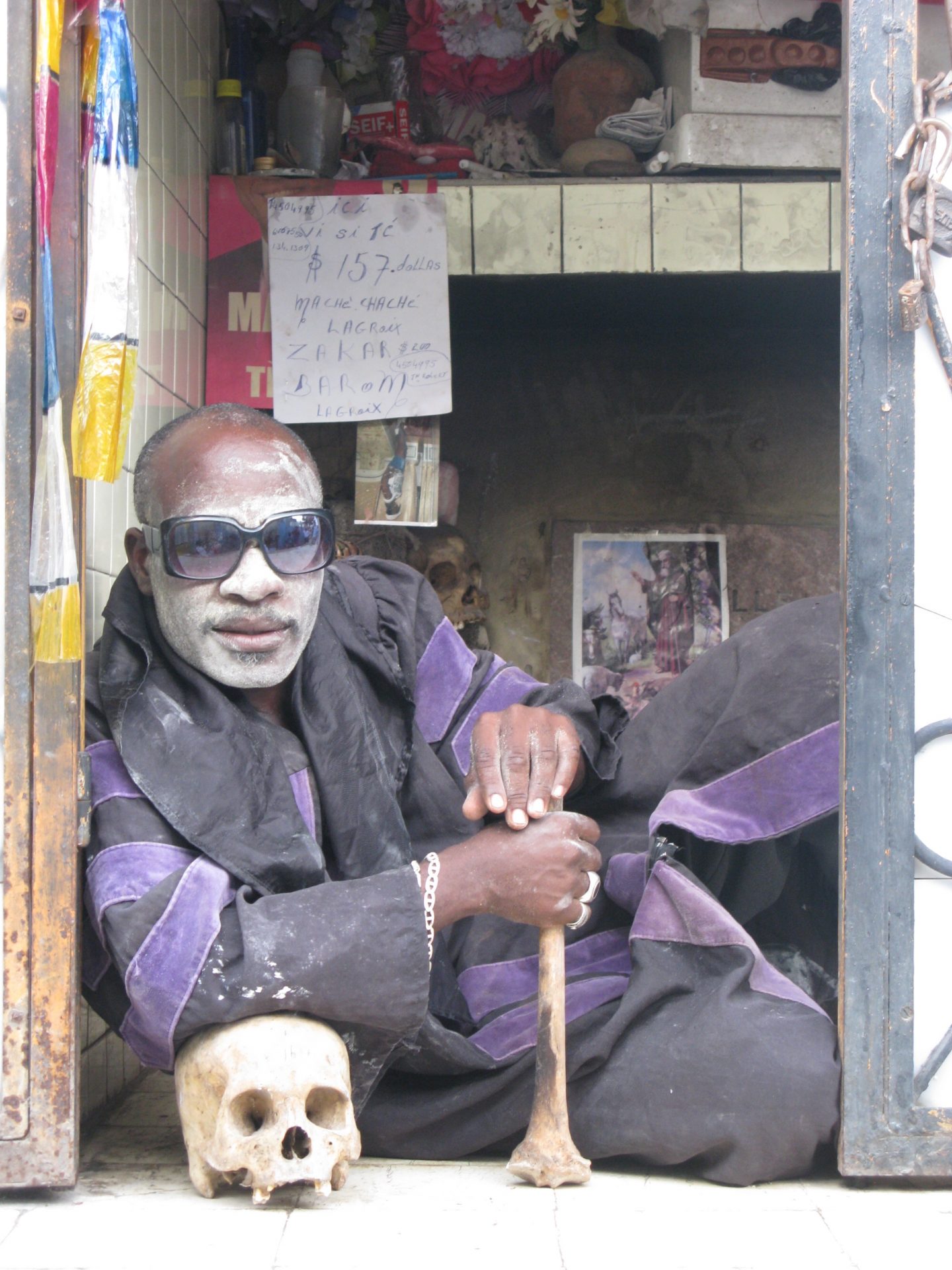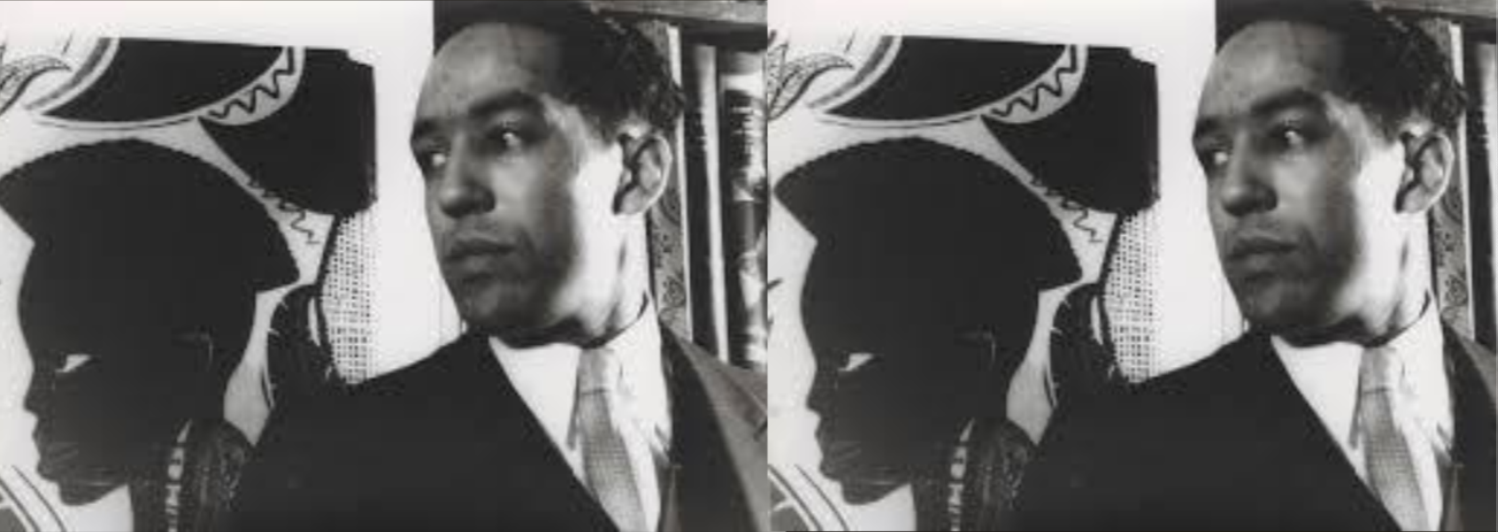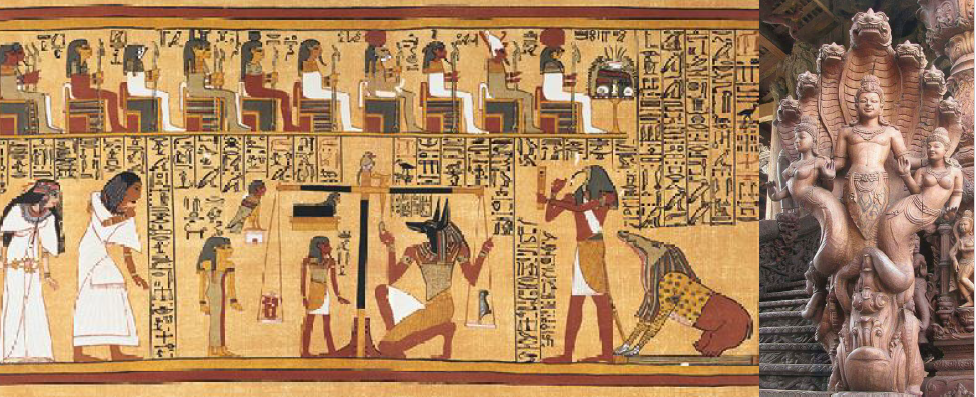Christianity, Race, Slavery: New Considerations for the Life Sciences
Haines 39/ZoomThe idea that so-called races reflect inherent biological differences between social groups has been a prominent aspect of Western thought since at least the Enlightenment. While there have been moments of refuting this way of thinking, fixed biological conceptions of race haunt new genetic technologies, where race is thought to be measurable at the molecular...
Le Monde Invisible: Art, Death and Vodou in Urban Haiti
Royce 243In Haitian Vodou, one lwa (deity) is widely celebrated as the spirit of pèp la (the people). The lwa Gede is a trickster who resides over death and sexual regeneration. He embodies transgressive masculinity and carnivalesque freedom. This presentation explores how such a rogue became a national sign. It traces Gede’s rise in popularity to...
Canceled! Halakhah: The Rabbinic Idea of Law Canceled!
Royce 306Canceled! Though typically translated as “Jewish law,” the term halakhah is not an easy match for what is usually thought of as law. This is because the rabbinic legal system has rarely wielded the political power to enforce its many detailed rules, nor has it ever been the law of any state. Even more idiosyncratically,...
Thinking About Religion: Langston Hughes and a Literary Approach to the Study of African American Religious History
Haines 39/ZoomAfrican American religious history has largely been written from the perspective of believers and belief. But what about the religious perspectives of skeptics, the doubtful, and unbelievers? What value can be gained from explorations of their views? Wallace Best answers these questions with a historical-literary analysis of the work of Harlem Renaissance writer, Langston Hughes....
Religion(s) in State(s) of Crisis
ZoomScholars of religion are not in the fortune telling business, but the comparative study of religion does provide multiple examples of how social, economic, and political crises have contributed to the transformation of cultural and religious systems in the past and can help us understand and anticipate how contemporary crises might be navigated in the...
Take Shelter: Teaching and Learning about the End Times, from Late Antiquity to Our Times
ZoomIn Jeff Nichols’s 2011 film Take Shelter, Michael Shannon portrays Curtis, a blue-collar family man who is haunted by terrifying prophetic visions of the end of the world. As he becomes obsessed with building a shelter in his backyard, convinced a storm is coming, Curtis’s relationships suffer and his life falls apart. How are we...
Religion is Physics: A Different Kind of Theory. A Different Kind of Everything.
Zoom(Fear not! No math is required for this talk!) Religion is accused of being many things, but how could Religion be Physics? Physics aims to understand everything with the most economical set of basic concepts, the so-called Theory of Everything. So what is the most economical explanation of Religion? What are its most basic elements?...
The Talmud Talks and We Listen: How the Talmud Became the Authoritative Voice in Jewish Life
ZoomThe Talmud is an obscure, elitist document that emerged from a small community of scholars who held no recognized authority, living as a minority in a land not their own. How did such a document become the authoritative voice of Jewish life and practice? In this session, Prof. Kraemer will discuss the journey of the...
Religion in a Time of Crisis: In the Shadow of the Holocaust
ZoomDuring the latest installment of the Center for the Study of Religion’s “Religion in a Time of Crisis” series, panelists Dr. Michael Berenbaum and Dr. Aaron Hass will discuss Susan H. Brown’s recent memoir. A stirring collection of poetry and prose, Circles: A Legacy will serve as an occasion to talk about the ways in...
Organs for Sale: Markets, Motives, and the Spirit of Medicine
ZoomThis talk is based on my forthcoming book, Organs for Sale, which is an extended case study of the bioethical question of how to increase human organ supply, focusing on the rhetoric of competing advocates, namely, the altruism-based status quo and market alternatives. But it is also an inquiry into what a public values and...









